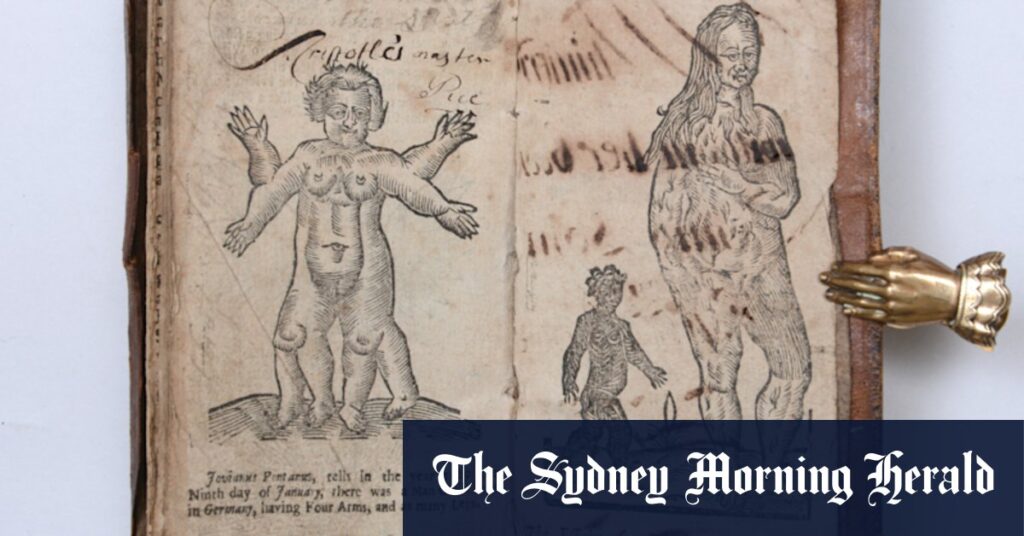
In a captivating revelation for bibliophiles and historians alike, the first sex manual written in English, Aristotle’s Master-Piece, is set to make its way to Australia. This more than 300-year-old text will be showcased at the 2025 Melbourne Book Fair, a highlight of the event’s extensive collection of historic treasures. Notably, the copy on display is annotated, offering a rare glimpse into the lives of a 17th-century couple who once consulted its pages.
For centuries, Aristotle’s Master-Piece was a staple in the realm of sexual literature, reprinted in hundreds of editions. Remarkably, it was still available for purchase in Soho sex shops as late as the 1930s. Despite its title, the work was not penned by the famed philosopher Aristotle. Instead, it is an amalgamation of advice from two physicians, Levinus Lemnius and Jacob Ruff, covering topics from conception and pregnancy to birth and copulation.
A Peek into the Past: The Content of Aristotle’s Master-Piece
The manual offers a fascinating look at 17th-century sexual education. Pom Harrington, owner of UK booksellers Peter Harrington, who will be exhibiting at the book fair, describes the book’s recommendations: “to cherish the Body with generous Restorative, to charm the Imagination with Musick, to drown all Cares in good Wine; that so the Mind being elevated to a pitch of Joy and Rapture, the sensual Appetite may be more freely encouraged to gratifie itself in the Delights of Nature.”
Moreover, the manual includes frank descriptions of male and female genitalia, with the clitoris identified as “the seat of the greatest pleasure in Copulation” for women. It suggests that when both partners “meet with an equal Ardour,” the likelihood of procreation increases.
The Melbourne Rare Book Week: A Prelude to the Fair
The Melbourne Rare Book Week, preceding the book fair, promises to be an enchanting journey through literary history. The program includes a variety of free events leading up to the fair’s opening on July 31. Attendees can explore topics such as collecting Georgette Heyer’s novels, illustrations in Jane Austen’s books, and the contributions of women to natural history and science. Culinary enthusiasts can even savor some of Mrs. Beeton’s iconic recipes.
For younger audiences and the young at heart, the event offers whimsical adventures into Alice’s rabbit hole and the magical world of Moominland, ensuring that there is something for everyone.
Historical Context and Cultural Impact
The presence of Aristotle’s Master-Piece at the Melbourne Book Fair underscores the enduring intrigue surrounding historical texts on sexuality. Such works not only provide insights into past societal norms and medical understanding but also reflect the evolution of public discourse on intimate matters.
According to literary historian Dr. Emily Carter, “The manual is a testament to the ways in which information about human sexuality was disseminated and consumed in the past. It also highlights the societal taboos and curiosities that have persisted over centuries.”
“The manual is a testament to the ways in which information about human sexuality was disseminated and consumed in the past.” — Dr. Emily Carter
Looking Forward: The Significance of the Exhibition
The exhibition of Aristotle’s Master-Piece at the Melbourne Book Fair not only celebrates the text’s historical significance but also invites contemporary audiences to reflect on the cultural and educational shifts that have occurred since its publication. The annotated copy provides a unique opportunity to connect with the personal experiences of readers from centuries ago.
As the fair approaches, anticipation builds for what promises to be a remarkable showcase of literary history. The event will undoubtedly spark discussions on the intersections of history, literature, and the human experience, offering visitors a chance to engage with the past in a meaningful way.
The Melbourne Book Fair, with its rich tapestry of events and exhibits, serves as a reminder of the enduring power of books to inform, challenge, and inspire.





